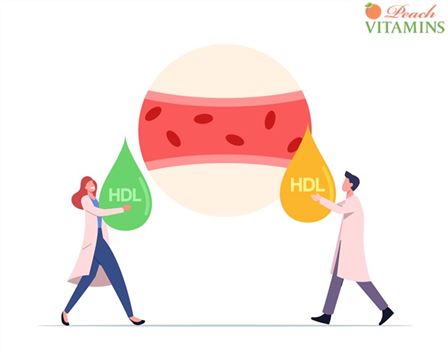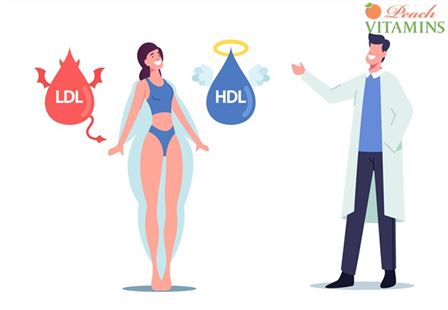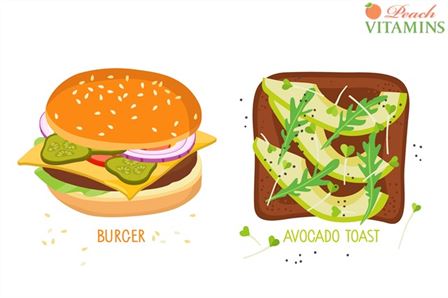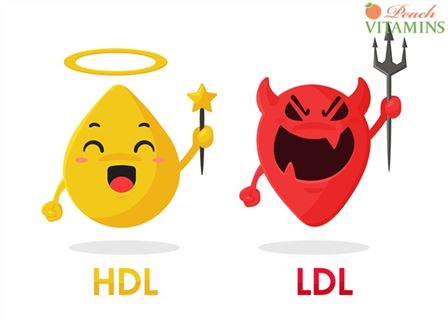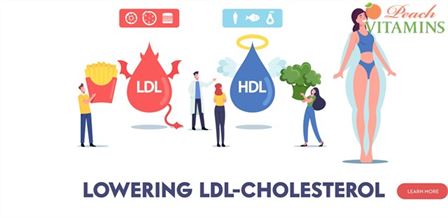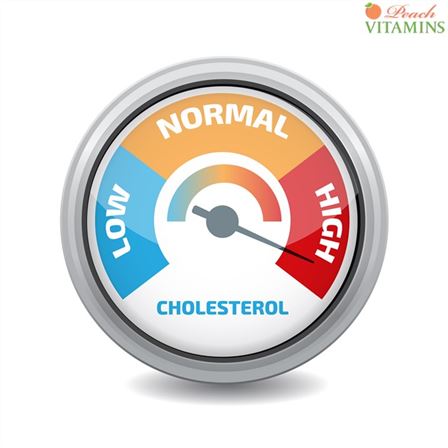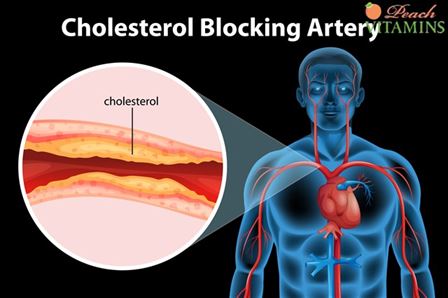There are many reasons people have high cholesterol levels. Some people may not even realize they have high cholesterol until they see their doctor. Others may have a family history of heart disease or diabetes. Still others may have been diagnosed with high cholesterol because of certain medications they take.
In this article, we will discuss some natural remedies for lowering cholesterol and triglyceride levels naturally. We will show you how to lower cholesterol and triglyceride levels by using home remedies.
Cholesterol and triglyceride levels are two important risk factors for heart disease. They are also associated with obesity and diabetes. If you want to get rid of cholesterol naturally, then you should try Ayurveda.
Ayurvedic medicine has been around for thousands of years. In India, Ayurvedic doctors recommend certain lifestyle changes to reduce cholesterol and triglyceride levels. These include avoiding processed foods, limiting alcohol intake, exercising regularly, and taking a balanced diet.
Ayurvedic medicine uses herbs and spices to treat various health conditions. It helps to lower cholesterol and triglyceride levels naturally by improving digestion and metabolism.
Benefits of Ayurveda for Cholesterol and Trigslyceride Control
Ayurveda uses herbs, spices, oils, and minerals to help maintain good health. Some of these include turmeric, ginger, garlic, black pepper, cinnamon, cardamom, fenugreek, cumin, coriander, clove, bay leaves, rosemary, basil, bayberry, sage, mint, thyme, cloves, nutmeg, mace, saffron, and many others. There are hundreds of different types of herbs used in Ayurveda. They come from plants, trees, flowers, shrubs, and grasses.
There are two major categories of herbs used in Ayruveda: primary and secondary. Primary herbs are those that are directly related to the body’s metabolism. Secondary herbs are those that are used to treat symptoms caused by primary herbs.
Primary herbs are usually used to improve digestion, boost immunity, increase energy levels, reduce inflammation, and prevent disease. Examples of primary herbs include ginger, garlic, turmeric, black pepper, cinnamon bark, cumin seed, cardamom pods, fennel seeds, bay leaf, rosemary, and so on.
Secondary herbs are usually used to treat specific conditions such as colds, coughs, fever, diarrhea, indigestion, constipation, skin problems, and headaches. Examples of secondary herbs include chamomile tea, aloe vera juice, honey, ghee, milk, lemon juice, and so on. When using herbs, you should always consult your doctor before starting any new treatment. Herbs can interact with prescription medications and cause side effects.
According to the National Heart, Lung, and Blood Institute (NHLBI), a person’s first cholesterol screening should occur between the ages of 9 and 11, and then be repeated every five years after that. (mayoclinic.org)
Cholesterol is Essential for Good Health
How do we know if cholesterol is essential for good health?
Cholesterol is a waxy substance found in animal tissues and is used to make cell membranes and hormones. It is also produced by the liver when carbohydrates are broken down into glucose. The body uses cholesterol to produce vitamin D, bile acids, steroid hormones such as estrogen and testosterone, and some enzymes.
The most common form of cholesterol is known as LDL (low density lipoprotein), which carries fat through the bloodstream. HDL (high density lipoprotein) carries cholesterol back to the liver where it is processed out of the blood. Too much LDL cholesterol puts you at risk for heart disease.
The American Heart Association recommends that people limit their daily intake of saturated fats and trans fats, eat foods rich in omega 3 fatty acids, and exercise regularly.
About 38% of American adults have high cholesterol (total blood cholesterol ≥ 200 mg (cdc.gov)
High Blood Pressure Can Be Prevented by Diet
High blood pressure affects millions of people around the world. If you have high blood pressure, talk to your doctor about what you can do to lower your blood pressure. There are several things you can do to prevent high blood pressure.
- First, make sure you get enough sleep every night. Sleep helps keep your body healthy and relaxed.
- Second, eat a balanced diet. Include foods like fruits, vegetables, whole grains, lean meats, fish, poultry, beans, nuts, seeds, and olive oil in your daily diet.
- Third, exercise regularly. Exercise helps your heart and lungs stay strong. In addition, it improves your mood and lowers your risk of developing diabetes and obesity.
- Fourth, avoid smoking cigarettes. Smoking makes your blood vessels constrict and can raise your blood pressure.
- Fifth, limit alcohol intake. Alcohol raises your blood pressure and increases your risk of having a stroke.
- Sixth, reduce salt intake. Salt makes your blood thicker and can lead to high blood pressure.
- Seventh, take medications if needed. Medications help control your blood pressure. You may need to use different drugs depending on your symptoms and lifestyle.
Diet and Exercise Suggestions for Lowering Cholesterol and Triggers in Ayurveda
A healthy lifestyle should be based on good nutrition, regular exercise, stress management and relaxation techniques, and a balanced approach to life. It also includes a holistic view of health, which means taking care of yourself mentally, emotionally, physically, and spiritually. These are all aspects of ayurveda, and they can help lower cholesterol levels and reduce triggers.
The beneficial effects of Ayurvedic treatment include:
- Improved digestion. This leads to better absorption of nutrients and less waste production.
- Reduced inflammation. Inflammation has been linked to increased cholesterol levels.
- Increased metabolism. Metabolism is breaking food down into energy. When the digestive system works well, metabolism is efficient and effective.
- Weight loss. Losing weight reduces the amount of stored fat in the body.
- Better sleeping patterns.
Ayurvedic practitioners recommend eating more fiber-rich foods such as legumes, vegetables, fruit, and whole-grain breads and cereals. They also suggest avoiding refined sugar and white flour products. They believe these foods contribute to poor digestion and cause excessive gas and bloating.
Exercise is another important part of a healthy lifestyle. Regular physical activity boosts immunity, strengthens bones and muscles, and promotes mental clarity. People who exercise regularly felt happier and healthier than those who don’t.
Breathing exercises are also recommended by many Ayurvedic doctors. Deep breathing calms the mind and relaxes the body. It’s believed that when the body is calm, the liver produces fewer toxins and cholesterol.
Finally, Ayurvedic practitioners recommend meditation and yoga. Meditation involves focusing attention on one object or idea. Yoga focuses on stretching and strengthening various parts of the body. Both practices improve flexibility, balance, concentration, and focus.
What Other Types of Medicines Can I Use Alongside Ayurvedic Medicine For Cholesterol?
The principal goal of this system is to treat diseases using natural methods. Besides the traditional method, there are many modern techniques used today such as acupuncture, homeopathy, aromatherapy, yoga, meditation, etc.
The most common type of medication used in conjunction with Ayurvedic medicine is statins. Statins are drugs that lower cholesterol levels naturally. They are used to reducing the risk of heart disease and stroke. There are two types of statins: low-dose (10 mg) and high-dose (20 mg). Both work well, but they differ in their side effects. High-dose statins cause liver damage and muscle pain. Low-dose statins do not cause these problems. However, they still help lower cholesterol levels.
Other medications that can be taken along with Ayurvedic treatments include Omega 3 fatty acids, probiotics, and fish oil supplements. Omega 3 fatty acids are essential fats found in fish oil. They help improve brain function and memory. Probiotics are live microorganisms that aid digestion and strengthen the immune system. Fish oil supplements contain Omega 3 fatty acids.
A garlic supplement may also be helpful. Garlic contains sulfur compounds that have been shown to reduce cholesterol levels.
What Foods Should I Eat When Taking Ayurvedic Medicine to Lower Cholesterol And Triglycerides
The first step in any treatment plan is to determine if you have a health condition that requires treatment. If your doctor determines that you do not have a serious disease, then he or she may recommend lifestyle changes such as exercise, diet, stress management, and relaxation techniques. Your doctor may also suggest certain medications, including herbs, vitamins, minerals, and hormones. In addition, there are many supplements available that can help support healthy living.
Herbal medicine is safe and effective. However, some people may experience side effects from herbal products, such as nausea, vomiting, diarrhea, abdominal pain, headache, dizziness, drowsiness, allergic reactions, and skin rash. You should always talk to your healthcare provider before starting any new treatments.
There are different types of herbal medicine. Some are made from plants, while others are made from animals. For example, ghee (clarified butter) is made from milk and is commonly used in Indian cooking. Other examples include turmeric, ginger, garlic, and black pepper.
When taking herbal medicine, it is important to follow the instructions carefully. This includes following the dosage guidelines, timing recommendations, and avoiding interactions with prescription drugs.
Stress Leads to High Blood Pressure
High blood pressure (hypertension) is one of the most common chronic diseases affecting people worldwide. It is defined as having a systolic blood pressure greater than 140 mmHg and/or diastolic blood pressure greater than 90 mmHg.
The main cause of death among patients with hypertension is heart disease. Hypertensive patients who do not receive treatment have a higher risk of developing cardiovascular complications such as stroke, myocardial infarction, congestive heart failure, peripheral artery disease, and renal insufficiency.
Hypertension is a major risk factor for coronary heart disease, stroke, heart failure, and kidney disease. Hypertension is considered a silent killer because there are no symptoms until irreversible damage occurs. Therefore, early detection of hypertension is very important.
Stress is a normal part of life. However, when stress becomes excessive, it can lead to physical and psychological problems.
Stress causes changes in the body’s hormonal system. When the body perceives stress, the hypothalamus secretes cortisol which increases blood pressure through stimulation of the adrenal glands. Cortisol is released when the body experiences stress and activates the sympathetic nervous system. The sympathetic nervous system stimulates the release of adrenaline and noradrenaline. Both hormones raise blood pressure by constricting blood vessels.
It is believed that the combination of these two systems handles the development of hypertension.
Final Thoughts
Ayurvedic medicine for cholesterol and triglycerides has been practiced for thousands of years. It is based on ancient knowledge and traditions passed down from generation to generation. There are many benefits associated with using Ayurvedic medicine.
Healthy cholesterol levels are essential for good health. If you want to get rid of cholesterol or reduce cholesterol levels, then you need to focus on healthy lifestyle habits. These include eating a balanced diet, exercising regularly, getting enough sleep, managing stress, and drinking plenty of water.
Reduce your risk of heart disease by scheduling a free consultation with Ayurvedic practitioner Cosmic Mike. He will provide health tips and advice on how you can take care of yourself so that you live longer, healthier, happier, and more fulfilled lives.
FAQs for Ayurvedic Medicine for Cholesterol and Triglycerides
✔️ Can Triphala Reduce Triglycerides?
Triphala can reduce triglycerides because it contains berberine, which has been shown to lower cholesterol levels. Berberine also helps to regulate blood sugar levels, which may be helpful for those who struggle with diabetes.
While Triphala is safe for most people, pregnant women or anyone taking medications that interact with anticoagulants (blood thinners should not use it). It should also not be taken if you have gallbladder problems or kidney stones.
✔️ Does Ashwagandha Lower Cholesterol?
Yes! The herb Ashwagandha has been used for centuries to treat various ailments such as anxiety, depression, stress, and high cholesterol levels. Recent studies show that Ashwagandha lowers cholesterol levels in humans.
Ashwagandha may also help prevent memory loss by improving blood flow to the brain. In addition, it may improve mood and reduce symptoms of anxiety and depression.
✔️Does Lemon Water Lower Triglycerides?
Lemon water lowers triglycerides. The citric acid found in lemons helps to break down fats into smaller molecules, which makes them easier to absorb. This process also increases the amount of fat-burning enzymes in the body. Drinking at least 8 glasses of water per day is recommended for weight loss.
Excess cholesterol is stored in your liver cells. Your liver then sends out signals telling your body to make more bile acids so they can dissolve fat. Bile acids are made from cholesterol. If you don’t eat enough fiber, your body will start making more bile acids than needed. This results in an increase in the level of cholesterol in your blood.
Lemon juice can help to remove excess cholesterol from your liver. Citrus fruits contain vitamin C, which boosts the immune system. Vitamin C also helps to maintain healthy skin and bones.

